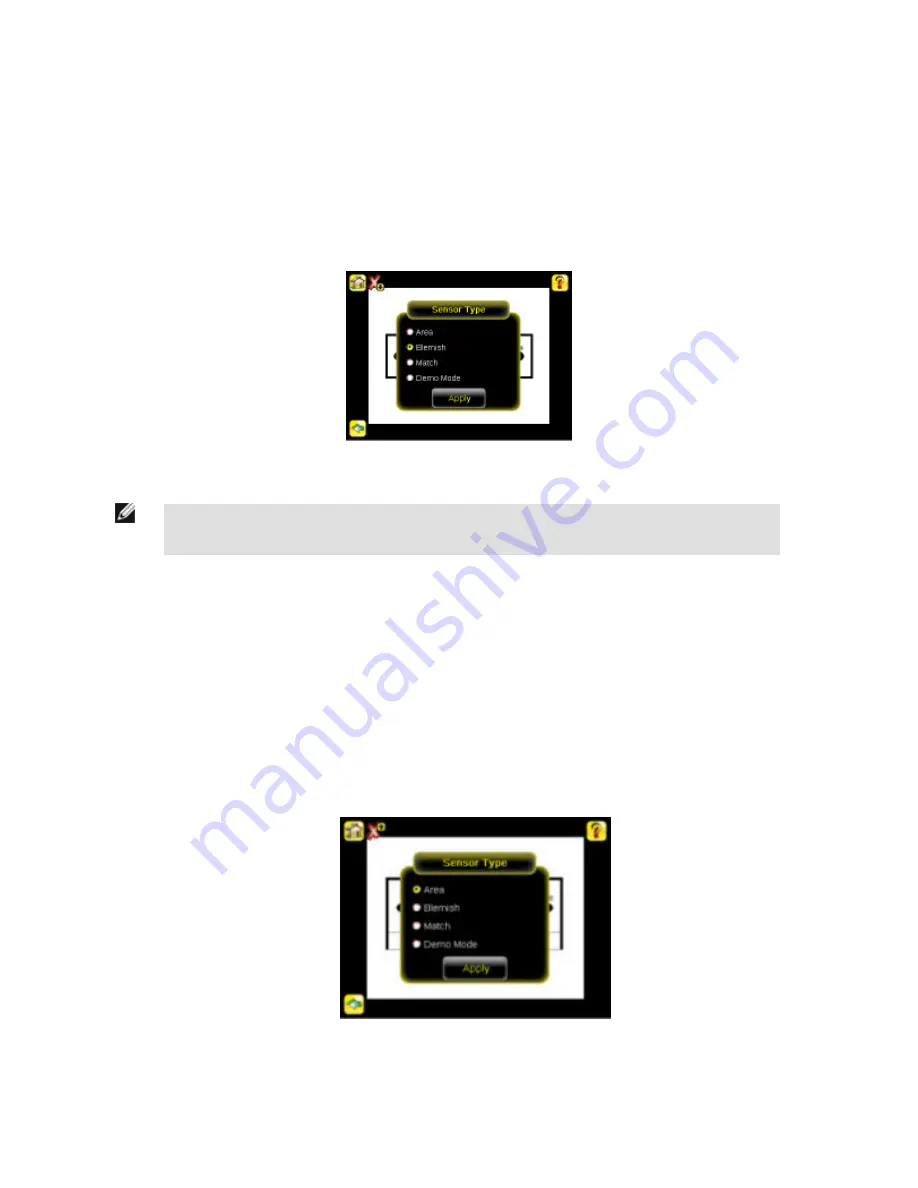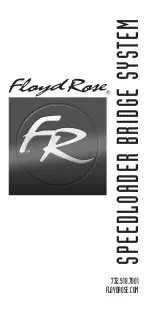
Demo Mode
The first time you power up the iVu TG sensor, it starts in Demo Mode. Demo Mode uses stored images and inspection parameters that
demonstrate how the sensor is set up without having to worry about focus, lighting, or triggers. In this mode, you can learn how to make
adjustments working with the three sensor types while observing how the adjustments affect the sensor results. When you exit Demo
Mode, the sensor reboots into its normal operating mode with default settings.
NOTE: You may return to Demo Mode any time by going to Main Menu > System > Sensor Type and select-
ing Demo Mode.
Sensor Types
The iVu TG sensor includes three Sensor Types:
Selecting a Sensor Type
When you exit Demo Mode, the sensor reboots with a single inspection with a Match sensor type by default. To change the Sensor Type:
1. Go to Main Menu > System > Sensor Type
This displays the Sensor Type menu options.
2. Select either Area , Blemish, or Match.
3. Click the Home Screen icon in the upper-left corner of the screen to return to the Home screen.
Rev. C
www.bannerengineering.com - tel: 763-544-3164
7
































